
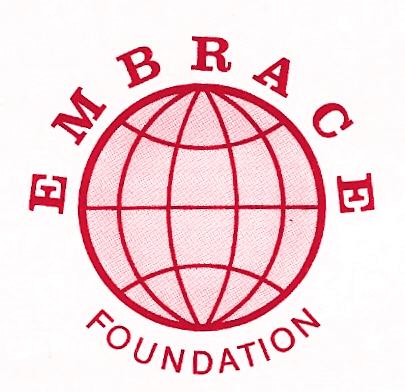
Embrace Foundation Retreat Center
Embrace.Foundation (skype messaging) - 011+1+212.675.4500 (New York)
Click to Email Us
Traveling in Thailand
Embrace Foundation is a non-profit,
educational foundation set up to create
better understanding between people of
different religions, cultures, traditions and
world philosophies.
Embrace Foundation works to bring leaders
and scholars of world-wide religions,
cultures and philosophies together by
sponsoring forums, seminars, lectures and
developing an international exchange
program. Embrace Foundation is particularly
concerned with reaching the world public
through the media.
Purpose
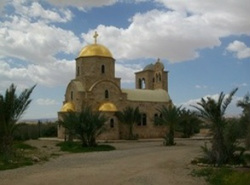
Donations
Embrace Foundation is an all volunteer
organization. All donations go directly to
programs.
Embrace Foundation does not and has
never given permission to any outside
organization to solicit or receive
contributions on our behalf.
All donations should be made to Embrace
Foundation only via Paypal or by mail. All
donations are tax deductible. A receipt will
be emailed to you. Please click on the Pay
Pal link below to Donate.
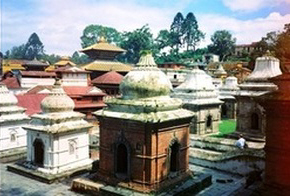
Travel As An Interfaith Act
Embrace encourages all who can do so, to
learn about other traditions and cultures by
traveling as “Grassroots Diplomats.” We
hope that people every where become life
long students of our world-wide humanity.
“ In every man there is something wherein I
may learn of him, and in that I am his pupil.”
R.W.Emerson
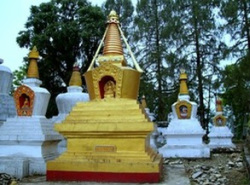

Embrace Humanity
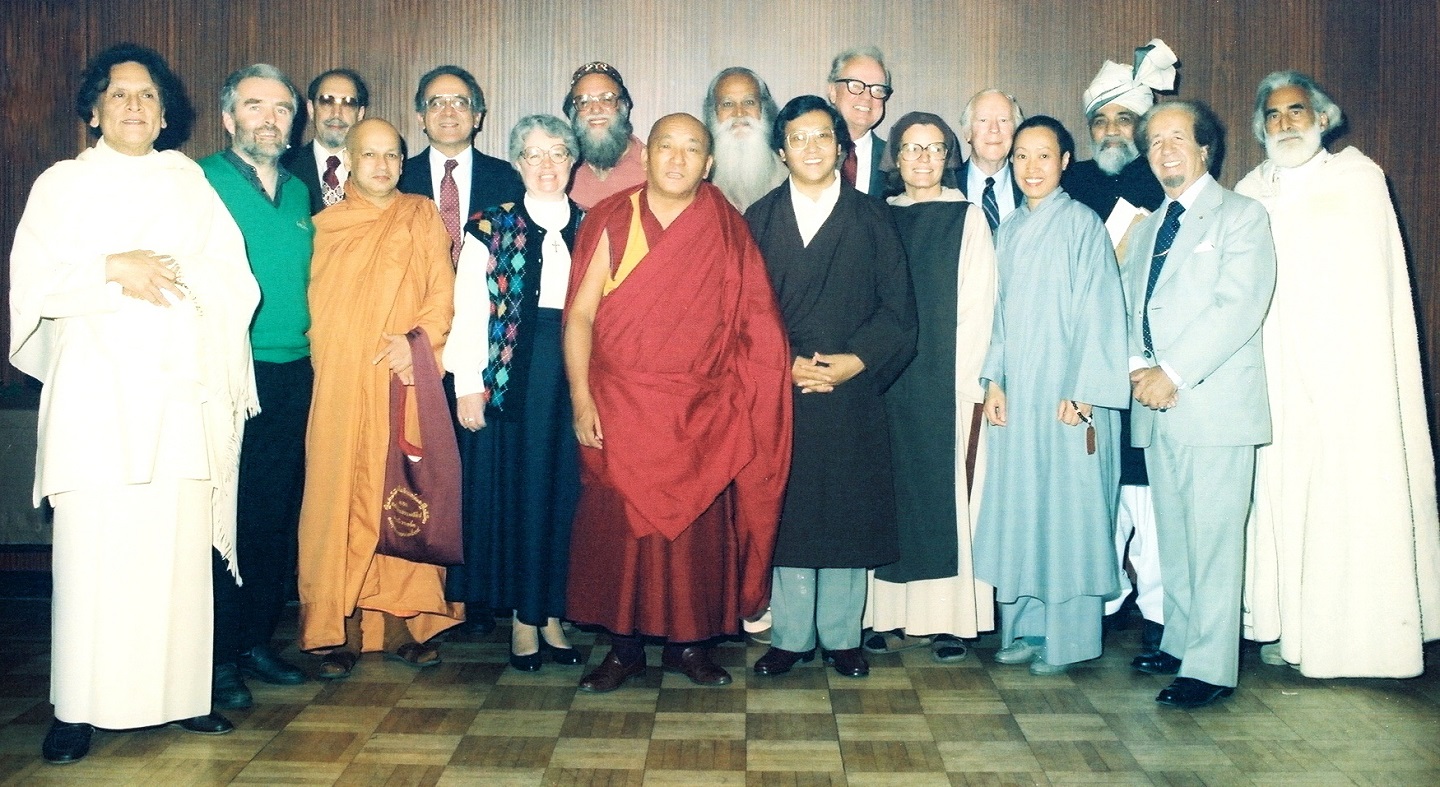
Thank you for making a donation.
TRAVELING IN THAILAND
The Embrace Founders had been prepared before their visit to Thailand for an intercultural mixing of Chinese influences in
traditional Theravada Thai Temples by the surprise arrival of a giant Kwan Yin (Chinese Goddess of Compassion) statue in
the garden of a local Wat in the U.S. The good -natured abbot there laughed at our surprise and assured the Founders that
everyone in Thailand was nowadays mixing together.
Thai Spirituality - Expanding Horizons
Thailand is ruled by the Thai Royal Family and most recently governed by the military. The Royal Family heads the official
“religion” of Buddhism. However, the original royal religion of Thailand was Hinduism. For centuries the Thai Royal family
was Hindu and to this day they still claim their royal lineage from Hindu kings. The government maintains one special Hindu
temple in Bangkok reserved for certain royal ceremonies. The “Brahmin” priests there are Thai. Still after many centuries
certain aspects of the Hindu tradition have endured in the hearts and minds of the Thai people and so in many Buddhist
temples there are also statues of Brahma (the Hindu Creator, who is not often taken as a personal deity in India as he is
usually considered above and beyond any interest in human affairs.) The statue of Brahma features 4 heads facing the 4
directions. There are also statues of Ganesha (a diety from Hinduism), the elephant headed aspect of the “Divine”
representing knowledge, scholarship and learning - also the remover of obstacles.
Tiger Cave - Wat Tham Suea
Practicing Interfaith
In the Southwest of Thailand the Embrace Founders witnessed considerable intermingling of traditional Chinese spirituality,
as well as Hindu aspects of the “Divine” at the Tiger Cave (Theravada Buddhist) Temple & Monastery. The monastery
is blessed because of the darshan (baraka in Arabic - spiritual energy generated by a great soul) of a Buddhist saint who
resided there. Despite the number of people who come, it is intensely peaceful mainly because the vast majority are silent
and come to pray. The grounds encompass a tropical forest with a “forest monastery”, a sacred cave, a giant Kwan Yin
statue and small temples for statues of Ganesha and Brahma. There are also smiling nuns living at the site who are kind
and helpful. This area Northeast of the town of Krabi has a sizable population of Thais of Chinese descent and more
recently, it appears, people from Myanmar. For those interested in Thai spirituality, we strongly recommend a visit here.
Phetchaburi
Like the Tiger Cave Temple and Monastery, Phetchaburi is for those who wish to spend time in a small city that is
unaffected by mass tourism. This is one of our favorite places in Thailand and it has at least two of the most idyllic temple
monastery complexes to explore. One is the Wat Yai Suwannaram giving a home to the heart-soothing all-teak Sala
Kanprian originating from the 8th century Ayutthaya era. It is honored but little used by the locals. This complex has many
temples, paths and buildings to investigate.
The other is Wat Boontwee (Tumkub) Wat complex, (an easy walk from the Khao Luang Caves), which is not famous but
is comfortable to explore along shaded paths and in temples where locals and monks will be surprised to see a visitor.
Phetchaburi has many, many other inspiring Wats to visit in the city.
Bangkok
Bangkok and Chiang Mai have so many temples, visitors can easily be overwhelmed by the beauty, seeing gold leaf even
when they close their eyes. All tour books have the most notable places. We will just mention three primary ones, that we
think should not be missed.
1.) Golden Mount - Part of Wat Saket (Phukhao Thong) Houses a Buddha Relic- Offers Beautiful views overlooking
Bangkok
2.) Wat Pho - Was once the school of traditional Thai medicine including yoga - This has been revived - Elaborate tile work
- Along with elegant Thai architecture are statues of Chinese Gods & Spirit Warriors - some Chinese landscaping Very
impressive & extensive complex
3.) Wat Mahathat - A Wat with Heart - This has the largest monastic order of Thailand. It is the center of Vipassana
Meditation (Insight Meditation) It has a relic of the Buddha and teaches a few classes in English with facilities for those
who are serious students.
The Embrace Founders spent part of an evening with an all-woman's chanting group. Very sweet people. This is an
excellent place to delve deeply into Vipassana meditation and if you are allowed to stay, has lovely grounds and will enable
the student to practice at length without distractions.
Medical
There are many places in the world that do not offer good allopathic medicine, Bangkok is not one of them. If you need
medical help - RSU is an excellent choice for a number of problems, as well as other medical centers.
Getting A Good Nights Sleep
For those not familiar with the neighborhoods of Bangkok, you may be directed to the Khaosan area for budget
accommodations. This entire street and side streets are the exact epicenter of most heavy partying. This area would not
be your choice, if you plan on getting up early to see the sights.
AYUTTHAYA & SUKHOTHAI
Both of these ancient Buddhist cities, which are now ruins can be easily navigated on foot in a half day to a full day. They do
not necessitate a bicycle unless your time is short. Of the two, Sukhathai is more extensive and a full day, with a lunch
break would be desirable.
CHIANG MAI
Chiang Mai is on the itineraries of many Western long-term visitors or expatriates. The “old city” has come to embody a
“party” place with an excess of motorcycles making it extremely noisy. It is difficult, but not impossible, to find a quiet hotel
or guest house within the old city. Our recommendation is to find your sleeping quarters walking distance to - but outside
the old city where it is considerably quieter. For all the inconvenience of finding quiet lodging, Chiang Mai has so many
magnificent Wats that it is well worth an extended stay. There are also inexpensive vegetarian/ vegan restaurants and
cafes serving organic Thai coffee exclusively.
We will not recommend any special places which visitors will easily find themselves, except to mention our experience
going to a little temple complex on our way to the university area called Wat Ku Tao. This temple - monastery is essentially
Mahayana with a lot of Thai Theravada influences. When the we entered the grounds with our camereas the young monks
were riveted with surprise. - In a matter of minutes, a group of young monks led by a couple of older monks gathered up
brooms and began sweeping leaves off the paved courtyard. The Wat is an grand mix of Thai and Chinese architectures.
As you may have imagined not many strangers visit this Wat, so it is a hidden gem. Being largely shaded by huge trees it is
a perfect location to enjoy visiting during the hotter part of the day.
CHIANG RAI
For some inexplicable reason, in many towns in Thailand absolutely everything shuts down on Sundays. This is definitely
the case in Chiang Rai, so if you are arriving on a Sunday, be prepared to be confronted with something of a ghost town.
Except for that caveat, Chiang Rai is a relaxing and very enjoyable small town to wind-down in.
Chiang Rai has a small Tribal Museum that is a helpful introduction to much of what you will see as if you cross the border
into Laos. Due largely to the centuries old unifying rule of the Royal Family and Buddhism, many tribal customs of the
various people within Thailand have dissolved except in remote regions. Those that remain are considered precious.
Chiang Rai is a town with a great deal of civic pride which is nice to see. When the Founders were there (in January) a
incredible flower show of child-like ingenuity and whimsy was on display in the park for all to enjoy for free. The night time
was when it became a wonderland of fragrance, light and color.
Chiang Rai also has the Wat Pho Singh that exudes a magical, fantasy atmosphere which should definitely be visited. (It
also has delightful monks.) An excellent, informal, inexpensive, traditional vegetarian restaurant is directly across the street.
Although many Thai vegitarian/vegan restaurants are now found in Western nations, Thai people (in Thailand) rarely take
vegetarianism seriously, so this place is something of a rarity for those in search of authentic Thai vegan or vegetarian food.
THE FOLLOWING NOTES ARE ON:
1. APPROPRIATE DRESS for Visiting Religious, Spiritual & Sacred Places
2. EXTREMELY IMPORTANT !!! Staying away from the Drug Trade outside Chiang Kong
APPROPRIATE DRESS FOR VISITING RELIGIOUS OR SPIRITUAL PLACES
A practical note for travelers going to anywhere in Southeast Asia
A beach vacation in Thailand in a resort-type location, is entirely different from an cultural exploration of religious and
spiritual places and shrines. If you are going to combine these vacations it is important to know that the way you dress will
greatly influence the responses you receive from the local community at their sacred sites.
In all religions in Asia, dressing modestly to enter any religious institution is necessary. It is not only a matter of religion but
of culture. It is disrespectful to disregard the traditions of people whose country you are traveling in. Westerns need to
remember that even the Vatican has a dress code - covered shoulders and knees.
While Westerners may have the mistaken notion that Hindus and Buddhists don't care how visitors dress when they enter
their religious or spiritual places of worship they do. Hindus and Buddhists who have celibate monks, swamis and nuns are
sometimes more offended by thoughtless visitors dressed inappropriately according to their cultural norms, than Muslims
who will generally be prepared at the door to give a tourist head covering and an abaya. Men and women going to religious
institutions should cover their shoulders, the top of their arms, their midriffs (unless wearing a sari) and legs. For those who
are going to sit on the floor cross-legged or pray, loose pants are appropriate, not exercise or bicycle shorts. Please note,
that only the Chinese community (but not Chinese Buddhist monks or nuns) is a lot less concerned with dress in their
own traditional temples than most others in Asia, but it is better for foreigners to dress conservatively which both shows
respect and gives you the flexibility to interact with monks or nuns as the case may be.
Visitors pretty much do not need to worry about doing the right thing in a Mosque, because the women in the woman's
section will generally take delight in teaching you how to do wudu or how to pray and what direction to pray towards, etc.
The same goes with the men.
However, in a Buddhist or Hindu Temple it is very important never to extend you legs while sitting towards the alter, the
Buddha or Deity. Usually, men and women sit on either side of an aisle, not together.
Altough there are not many Gurdwaras (Sikh Temples) in S.E. Asia they almost always have scarves for head covering for
all who come - men and women.
Also, Southeast Asian Theravada Buddhist monks are much stricter about their contact with women than other Buddhists.
As a woman, you can not hand items directly to a monk, even a young boy. The item should be set down and the monk then
picks it up. Contrarily, young boys in the Theravada Monasteries, who have left their Mothers are often a little homesick and
within the proper bounds love spending time with an adult female asking questions and trying to learn about the outside
world.
Churches will expect visitors to dress respectfully. We are not familiar with synagogues in any part of S.E. Asia except
Singapore. However, the advice about churches applies to them as well, especially for those visitiing orthodox, ultra
orthodox and conservative synagogues, which often have the women and men sitting on opposite sides. Also, most of
these synagogues require males to cover their heads and sometimes females as well.
EXTREMELY IMPORTANT ! ! ! AVOIDING THE DRUG TRADE
Outside Chiang Kong & Vicinity
Although some unsuspecting people will be lured into believing an ill-informed guide book which states that the area once
known as the “Golden Triangle” is defunct and completely safe, this is not case. The Founder's were informed that while the
poppy/ heroin trade might be down, the manufacture of meth amphetamines is operating on a massive scale in neighboring
Myanmar. As most people know, the drug trade remains profitable only as long as their distribution and users expand
enough to cover those who die from overdoses or drug-related deaths and as one line of distribution is shut down, another
emerges.
People have disappeared in this area and there are intelligence agencies and their operations in neighboring regions. Drugs
are a huge generator of billions of dollars for certain governments that Embrace has mentioned before and it helps fund
numerous cases of violent aggression so stay away as much as possible from the vicinity near borders. While you travel to
or from Chiang Kong or neighboring areas, keep an eye at all times on your bags, be careful of anyone who is unusually
talkative, aggressively friendly, asks a lot of questions about your itinerary or does not behave in a reserved traditional
manner.
- Great Visions TV
- Inspirations
- Media
- Possibilities
- Astrophysics, Quantum Physics & The Nature of Reality
- Deconstructing Nuclear Fission & Nuclear Waste
- Defense Industry as Community Builders
- Defense Industry As Energy Providers
- Global Water Shortages
- Innovative Technology
- Intelligent Communities & Development
- Pentagon & Non-Western Nations
- Recreating
- Resource Based Population
- Sharing Community Resources
- Protecting Human Rights
- Spiritual Ecology
- Syria
- Write to Us
Embrace Foundation International

